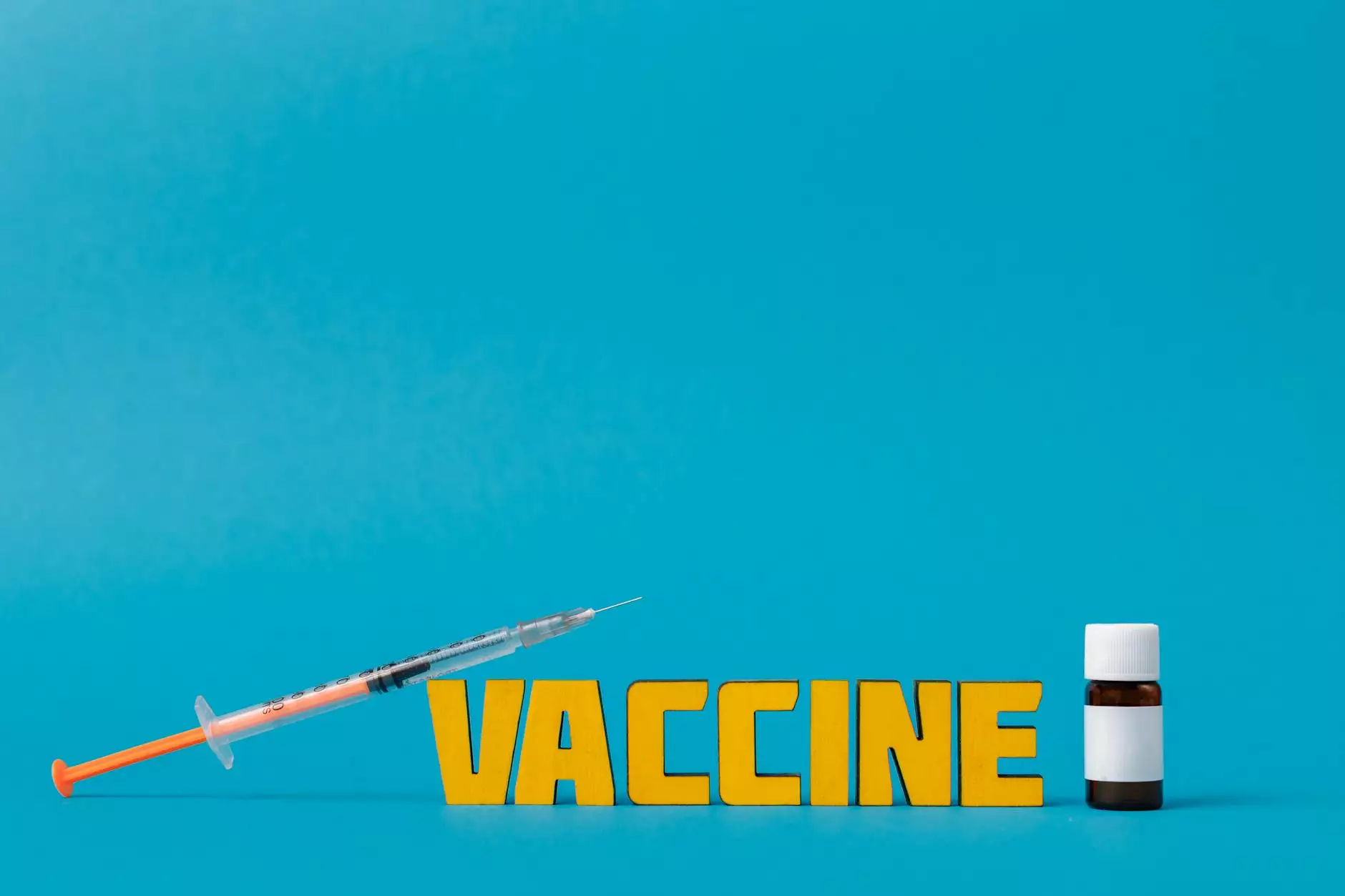The Comprehensive Guide to Equine Injections: Enhancing Racehorse Health

As the world of equestrian sports continues to evolve, the significance of proper care for racehorses cannot be overstated. Among the many methods of maintaining optimal health for these athletes, equine injections play a pivotal role. Serving not only as a treatment method but also as a preventive measure, these injections ensure that racehorses can perform at their best while minimizing the risk of injury or illness.
Understanding Equine Injections
Equine injections refer to the various methods of administering medications, vaccines, or therapeutic agents directly into a horse's body. This method is crucial for both immediate treatment and long-term health management. The capability to deliver medications swiftly and effectively through injections has revolutionized veterinary care.
Types of Equine Injections
Equine injections can be categorized based on their purpose and the type of medication administered. Here are some common types:
- Vaccinations: Protect against diseases such as equine influenza and tetanus.
- Joint Injections: Administer corticosteroids or hyaluronic acid to manage pain and inflammation in joints.
- Intravenous Injections: Deliver medications directly into the bloodstream for fast action.
- Intramuscular Injections: Administer drugs deeper into tissues, useful for longer-lasting effects.
- Subcutaneous Injections: Given just beneath the skin, often for vaccines and some medications.
The Benefits of Equine Injections
The benefits derived from administering equine injections are numerous and vary depending on the type of injection and the horse's specific health needs. Here are some of the key advantages:
1. Enhanced Performance
Regular use of appropriate injections can significantly enhance the athletic performance of racehorses. By managing pain and inflammation through joint injections, horses can train more effectively and recover quicker.
2. Disease Prevention
Vaccinations are an essential part of preventative care. By vaccinating racehorses, owners can significantly decrease the risk of contagious diseases that can compromise a horse's health and performance.
3. Tailored Treatment Plans
Veterinarians can customize treatment plans based on the specific health needs of each horse. Whether addressing allergies, pain, or requiring supportive therapy, equine injections provide flexibility in treatment options.
4. Quick Administration and Absorption
Injections allow for rapid delivery of medications, which is crucial in emergency situations. This swift action can be the difference between a minor issue and a serious health concern.
Common Medications Used in Equine Injections
Several medications are frequently used in the context of equine injections. Understanding these can help owners and trainers make informed decisions regarding their horse's healthcare.
Corticosteroids
Corticosteroids are often used in joint injections to alleviate inflammation and pain. They are effective in treating osteoarthritis and other joint issues commonly seen in racehorses due to their high level of activity.
Hyaluronic Acid
This naturally occurring substance can be injected into joints to improve lubrication and reduce friction, thereby promoting joint health and reducing the risk of injuries.
Antibiotics
In cases of infection, antibiotics delivered via injection can quickly combat bacterial threats. Fast intervention is critical for maintaining a horse's overall health and performance.
Vaccines
Vaccines protect horses from common diseases and are a vital part of a horse's health regimen. Regular vaccination schedules should be maintained to ensure long-term immunity.
Injection Techniques and Best Practices
Proper administration techniques for equine injections are vital to ensure the safety and efficacy of the treatment. Here are some best practices that veterinarians and horse owners should follow:
1. Proper Site Selection
Choose the injection site carefully based on the type of injection:
- Intramuscular: Common sites include the neck, hindquarters, and pectorals.
- Intravenous: Typically performed in the jugular vein.
- Subcutaneous: Areas behind the shoulder or on the neck are suitable.
2. Aseptic Technique
Prior to any injection, ensure that the site and equipment (needles and syringes) are sterile to prevent infections. Use alcohol swabs to clean the injection site.
3. Needle Size and Gauge
Selecting the appropriate needle size and gauge based on the horse’s age, size, and the type of medication is crucial. Generally, larger gauges (smaller numbers) are used for thicker medications.
4. Injection Speed
Administer the injection gently and steadily. Rapid injection can cause discomfort and distress to the horse.
Aftercare Following Equine Injections
Following the administration of equine injections, proper aftercare is necessary to ensure recovery and minimize complications. Here are some key steps to follow:
1. Monitor for Reactions
Keep an eye on the horse for any adverse reactions such as swelling, lameness, or unusual behavior. Immediate veterinary assistance should be sought if serious reactions occur.
2. Provide Adequate Rest
Post-injection, horses should be given adequate rest to allow the body to absorb the medication effectively and reduce the risk of strain or injury.
3. Maintain Hydration and Nutrition
Ensure the horse has access to fresh water and is on a balanced diet. Nutritional support plays a crucial role in recovery.
4. Follow-up Vet Appointments
Scheduled follow-up appointments with the veterinarian can help assess the effectiveness of the treatment and adjust future care plans as needed.
Conclusion: The Importance of Informed Decisions in Equine Health
In the competitive world of racehorses, equine injections serve as a critical element in maintaining the health and performance of these remarkable athletes. By understanding the benefits, types, and best practices associated with these injections, horse owners can make informed decisions that directly impact their horse's well-being and success on the track.
For more information on equine injections and comprehensive racehorse care, visit racehorsemedcare.com—your trusted source for equine health solutions.



